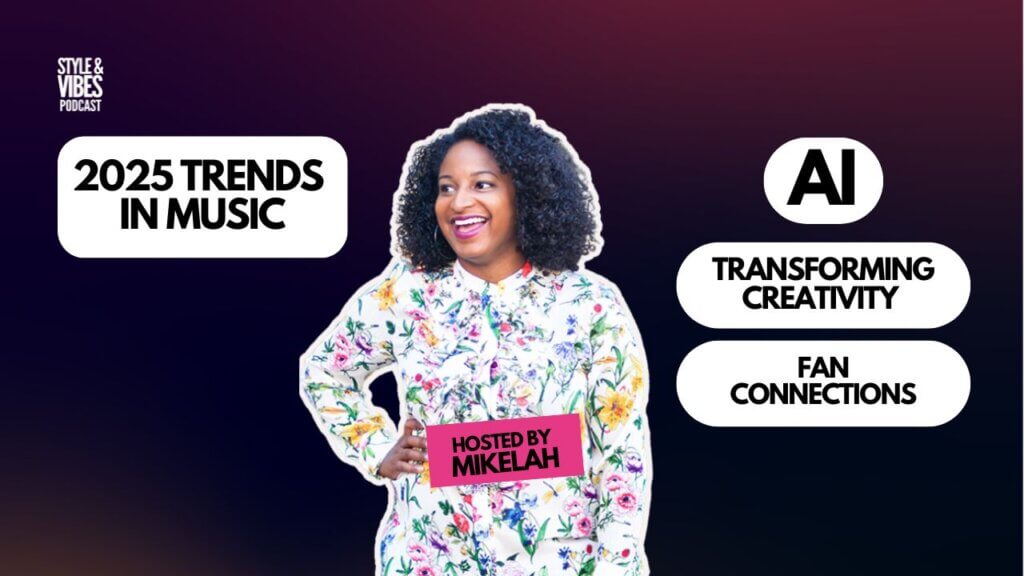
This Style and Vibes podcast episode dives into the transformative world of music as we approach 2025, focusing on several key trends and predictions that are set to reshape the industry. Makayla, the host, reflects on the increasing role of artificial intelligence in music production and its implications for artists and listeners alike. As AI technology becomes ubiquitous, one cannot overlook how it disrupts traditional music creation. The integration of AI in music is not novel, but the coming years will amplify this trend, stirring conversations about AI-generated songs featuring the voices of established artists. For instance, remixes of legendary artists like Tupac are becoming popular online, offering a glimpse of a future where deceased artists might ‘release’ new music through AI. These developments prompt essential questions about artistic integrity and ownership.
1.) Original music composition and the rise of royalty-free music
With the advent of AI-generated music that aligns closely with specific genres, including lo-fi and background scores, newer artists may find themselves competing against an algorithm instead of an actual human musician. This evolution could lead to a scenario where the connection between artists and their audience diminishes, posing a challenge for both performer and listener. I emphasizes that as consumers have easier access to AI-generated tunes, the need for genuine engagement with artists becomes increasingly vital.
2.) The importance of Improving live performance
Another critical point raised in the episode is the shifting landscape of live music performances. Audiences are beginning to demand more than just passive listening experiences; they seek connection, authenticity, and artistry from artists behind the microphone. With ticket prices rising, fans want performances that justify their investment—something that genuinely resonates rather than a simple singing over pre-recorded tracks. This heightened expectation could lead to an evolution in how artists prepare and execute live shows—a challenge and an opportunity to create memorable, immersive experiences for their audience.
3.) Better merch experiences
The need for artists to enhance their merchandising strategies to better engage with their fan base. While traditional merchandise like t-shirts remains standard, there is a growing opportunity to create exclusive, experiential offerings that deepen the relationship between artists and their fans. Innovative collaborations, pop-up events, and personal touches can form memorable connections that keep fans engaged long after the concert ends. By fostering a sense of community and connection, artists can effectively counteract the dissonance that AI-generated music may inflict on traditional fan engagement.
4.) Social media’s role in promoting music
social media’s evolving role in music promotion is also explored. As platforms become more commercial, artists must adapt and find new ways to connect with their audience outside of social media. Email newsletters and intimate fan clubs that offer exclusive content can deepen engagement. Furthermore, the importance of a strong digital presence cannot be overstated—artists and their teams must navigate these changes deftly to maintain connection and relevance.
Ultimately, this podcast episode is a call for creativity and adaptability in an industry facing unprecedented changes. As technology transforms the landscape of music, it presents both challenges and opportunities for artists to rethink their craft. The future of music lies in finding ways to combine technology with artistry while preserving the meaningful connections that truly resonate with fans. As we move toward 2025, a collaborative effort is needed from all stakeholders—artists, industry experts, and fans alike—to ensure this transition fosters creativity, authenticity, and connection in a rapidly changing world.


Leave a Reply